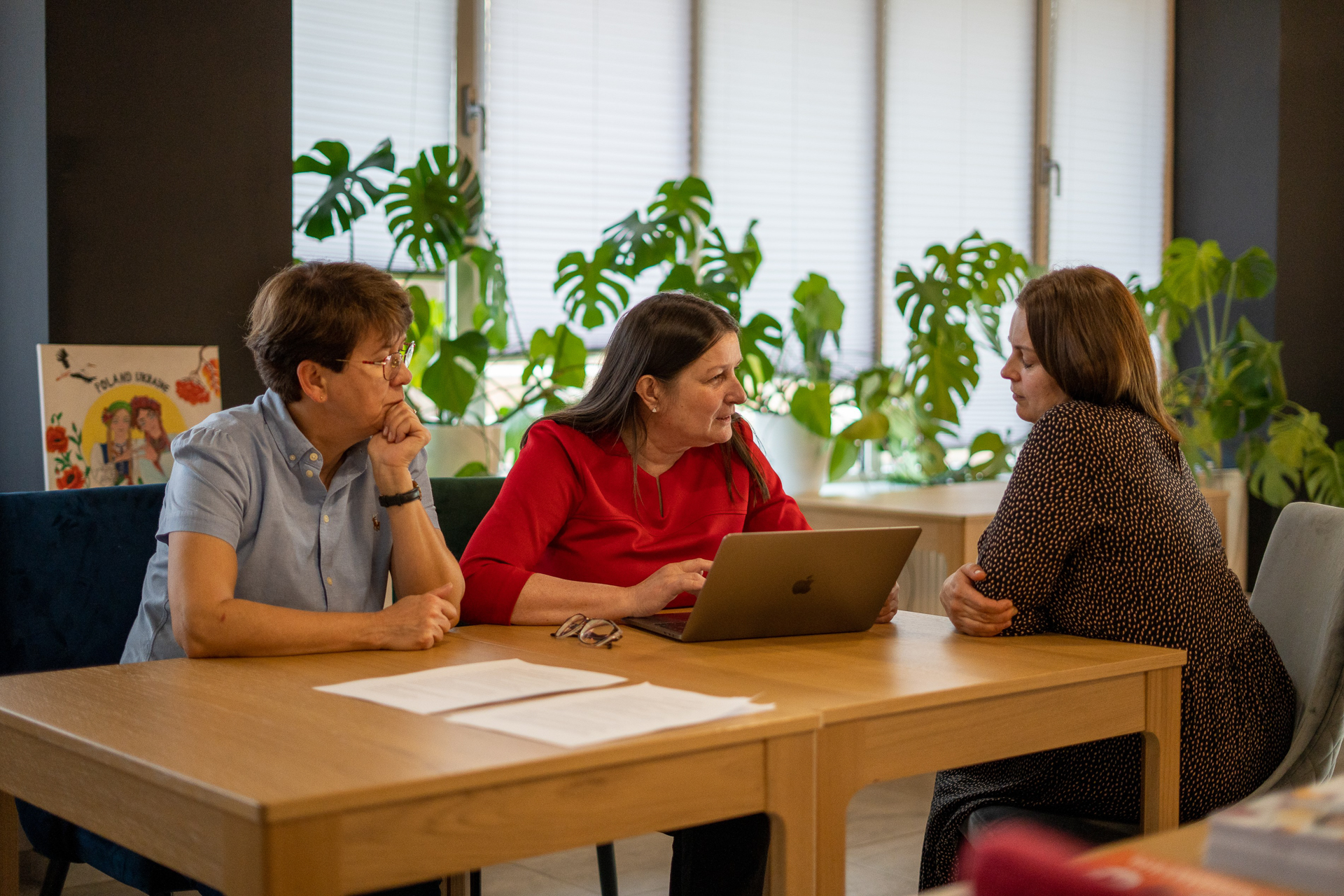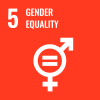Piaseczno, 12 December 2022 – Before the war started in Ukraine, Tatiana was a homemaker, looking after her two young children aged ten and six, in the northern Ukrainian city of Berdychiv. In her free time, she worked as a seamstress, sewing toys for children, particularly Scandinavian gnomes.
When she first arrived in Poland in March 2022, 39-year-old Tatiana had a significant culture shock; she felt stressed and overwhelmed by the many changes in her life. Her husband had previously worked in Poland, so he was better equipped to handle the changes.
Since the outbreak of the war in Ukraine, nearly 8 million people have fled to neighbouring countries. During this time, Poland has received close to 1.5 million people from neighbouring Ukraine, who often struggle with the effects of war and trauma.
Many are particularly vulnerable after leaving their family, friends, and belongings behind. A significant number of those crossing the border are women with young children, requiring additional support to integrate into life in Poland.


Tatiana attends Polish classes, history, and culture lessons, and goes on different day trips organized for the group. Photo: IOM/Alexey Shivrin
Tatiana soon realized that she needed to find a job in order to support her family, but she also wanted to do something that she was good at – and most importantly, felt passionate about. A special initiative in Poland would give Tatiana the chance to meet some amazing women to support her through the difficult period that she was enduring.
Under the Share SIRA initiative, the International Organization for Migration (IOM) is currently implementing two local pilot projects in the town of Piaseczno and in the Lower Silesia region, to support the integration of migrant and refugee women into Polish society.
Launched in 2021, the project has gained new momentum due to the new arrivals of people fleeing the war in Ukraine who are now looking to enroll. Since the escalation of the war in February this year, the Piaseczno community has welcomed over 9,000 new Ukrainian refugees who currently represent over 20 per cent of the town’s population.
“Through this initiative, I have received helpful mental health and psychological support and one-on-one career counselling sessions. I have also started attending Polish classes and studying the history and culture of Poland; I am really enjoying it so far,” says Tatiana.


The EduNowa Foundation is helping Tatiana get her doll-making business off the ground, from creating a website to setting up a business Instagram account. Photo: IOM/Alexey Shivrin
Run by Polish women, local project “Piaseczno Welcomes You!” is currently being implemented by the EduNowa Foundation in cooperation with the Piaseczno Women’s Initiative, with support from the administration of Piaseczno, a small town close to Warsaw.
“We are working with migrant women living in Piaseczno because we believe that the well-being of women impacts the well-being of the entire family,” explains Magdalena Bogusławska, Director of the EduNowa Foundation.
“Tatiana told us that she was a seamstress and that she used to sew toys and gnomes for children back home, but that she had left her sewing machine in Ukraine. As luck would have it, I had recently received a sewing machine because I had always dreamt about learning how to sew, but I never got around to using it,” Magdalena recalls.
“Since I was never going to have the time or perseverance to learn, I decided to give it to Tatiana, and she was incredibly happy about it. Next lesson, she came with gnome dolls for all of us.”
Since then, Magdalena and the EduNowa Foundation have done their best to help Tatiana to get her doll-making business off the ground, and the next step will be setting up a website and business Instagram account to try to sell her dolls online. “I am forever grateful to Magdalena for giving me her sewing machine which now helps me fulfill my dreams,” says Tatiana.

After attending various classes and counselling sessions, Tatiana’s confidence has grown and she finally feels ready to launch her doll-making business. Photo: IOM/Alexey Shivrin
After attending Polish classes and job counselling sessions with Magdalena, Tatiana’s confidence has grown. She feels ready to officially launch her doll-making business while she settles into her life in Poland. “I have been lucky enough to meet good, kind-hearted people. It has given me the opportunity to distract myself from the problems back home,” Tatiana explains.
Despite having to leave her old life behind, with support from local organizations and the vital work that they carry out on integration for those displaced by conflict, Tatiana and many others in a similar situation now have an opportunity to build a new life in Poland.
Her two boys go to a Polish school where they are currently learning Polish and are slowly starting to feel more integrated in their new surroundings. “Since the war is not over yet, we decided to stay in Poland with the children as it’s much calmer here. We are not planning to return to Ukraine just yet; we are happy here for now.”
To date, the Share SIRA project funded by the European Union's Asylum, Migration and Integration Fund (AMIF) has assisted 30 women from Ukraine, the Russian Federation, and Belarus. IOM aims to expand and implement integration projects in Rzeszów, Krakow, and Warsaw to ensure that others can also benefit from the crucial support they need to feel at home in Poland.
This story was written by Ewelina Kawczynska, Senior Public Information Coordinator with IOM Poland, ekawczynska@iom.int.
If you are interested in donating to Ukraine relief efforts, please visit IOM's fundraising page.
International Migrants Day (18 December) is the day designated by the United Nations to raise awareness about the challenges and opportunities presented by global migration in all its forms, to advocate for the rights of migrants to be respected, and encourage the international community to work together to ensure migration is managed in a manner that is safe, orderly and dignified.




